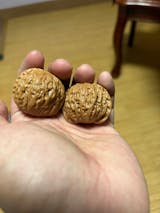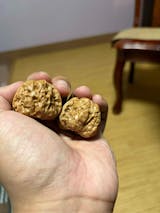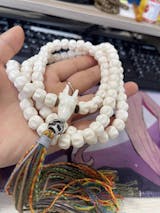What is Feng Shui and How Does it Work?
- Introduction
- What is Feng Shui?
- History and Origins
- Principles of Feng Shui
- Tips for Using Feng Shui at Home
- Conclusion
Introduction:
Feng Shui is a practice rooted in the belief that our homes reflect our inner selves. According to interior designer Catherine Brophy, the goal of Feng Shui is to create harmony between your energy and the energy of your living space. By aligning your environment with your true self and your aspirations, Feng Shui helps to foster balance and well-being in your life. In this article, we will learn about what feng shui is and how it works.

What is Feng Shui?
Feng Shui, is an ancient Chinese practice that involves arranging the environment to promote harmony, balance, and prosperity. It is based on the belief that the arrangement of objects in our living and working spaces can affect the flow of energy, or "Qi" (pronounced "chee"), and thus influence our health, happiness, and success. By understanding and applying the principles of Feng Shui, individuals can create spaces that enhance their well-being and attract positive outcomes.
History and Origins
The origins of Feng Shui date back over 3,000 years to ancient China. Initially, it was used for orienting buildings, particularly significant structures like tombs, temples, and palaces. The practice is deeply rooted in Taoist philosophy, which emphasizes living in harmony with the natural world. Feng Shui has evolved over the centuries, incorporating aspects of astrology, geography, and even mathematics. Today, it is widely practiced around the world, with both traditional and modern interpretations.

Principles of Feng Shui
A core principle of Feng Shui is the balance of five elements: earth, wood, water, fire, and metal. Each element represents different aspects of life and contributes unique energies to your space. The five elements are as follows:
1. Earth: Stability and Wellness
- Meaning: Earth is associated with stability, knowledge, and wellness.
- Colors: Yellow, orange, and brown hues.
2. Wood: Vitality and Family
- Meaning: Wood symbolizes growth, vitality, and family.
- Colors: Natural greens and blues.
3. Water: Flow and Career
- Meaning: Water is linked to flow, movement, and career opportunities.
- Colors: Black and dark blue.
4. Fire: Passion and Fame
- Meaning: Fire represents passion, energy, and fame.
- Colors: Red and bright orange.
5. Metal: Beauty and Efficiency
- Meaning: Metal is associated with beauty, precision, and helpfulness.
- Colors: White, grey, and metallic shades.
By balancing these five elements in your home, you can create a harmonious environment that supports all aspects of your life.

Tips for Using Feng Shui at Home
How to keep family members healthy and bring prosperity to the family is something that many people are concerned about, especially for those who believe in Feng Shui. There are many considerations for Feng Shui in the home.
1. Interior Layout
For the best layout in the living room, a square shape is ideal. Avoid placing the sofa under beams or directly facing corners. If there are protruding corners in the living room, you can mitigate their impact by placing potted plants or furniture in front of them. If the living room is L-shaped, consider creating a partition to divide it into two separate spaces.
2. Orientation Consideration
The living room should ideally be located in the front half of the house near the main entrance. This placement allows it to better absorb the energy (Qi) entering through the front door. If there is a long corridor inside the house, ensure that it is kept clean, tidy, and well-lit.
3. Color Selection
The primary color scheme in the bedroom should be comfortable and natural. Avoid using deep blue and deep red colors. When choosing colors, try to include a balanced representation of the five elements (wood, fire, earth, metal, and water).
4. Planting Feng Shui Trees Around the House
If the house itself is not situated in an area with good Feng Shui, you can plant large Feng Shui trees, such as camphor trees or pine trees, around the property. If the home's Feng Shui leans towards being too yin (negative energy) or has strong Sha Qi (harmful energy), planting cypress trees, which can ward off evil spirits, can be beneficial.
5. Placing Auspicious Decorations
Auspicious decorations can enhance and balance the Feng Shui energy in a home. Specific items can effectively improve household Feng Shui. For instance, placing a wealth god statue in the financial position of the living room can boost the home's financial luck. Positioning a Pi Xiu (mythical creature) ornaments at a table can bring protective and wealth-attracting benefits. An aquarium placed at the entrance can not only serve as a decorative feature but also invigorate the space, enhancing the home's Feng Shui and fortune.

Conclusion:
By understanding what Feng Shui is, exploring its history and origins, appreciating the basic principles of Feng Shui, and applying practical tips for using Feng Shui at home, you can harness this ancient art to enhance your living environment and overall well-being.
Related Articles:
Feng Shui Bracelets: Meaning, Benefits, and How to Wear Them
What are Some Good Tips for Bedroom Feng Shui?
What is Feng Shui and How to Apply it in Bedroom Design
How do I Activate A Feng Shui Pixiu Bracelet at Home?
Pixiu Meaning in Feng Shui: The Role and Placement of Pixiu for Prosperity and Protection




























































